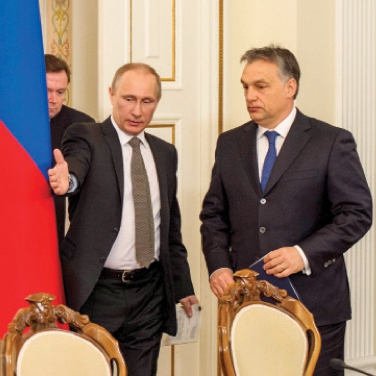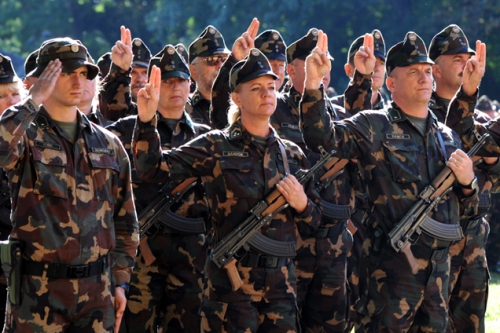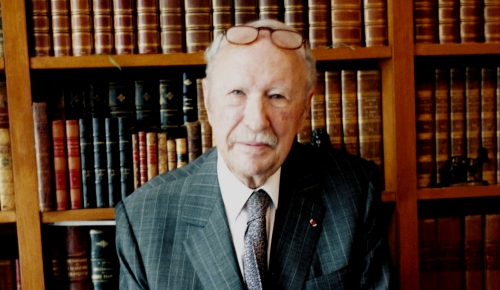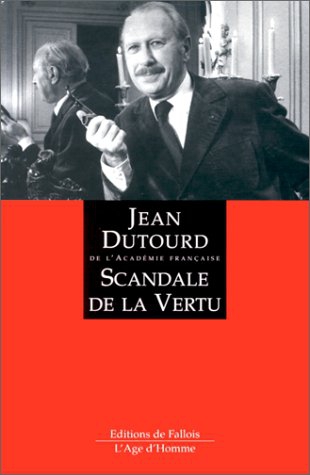I was surprised by how grimy and sooty Budapest was. So many of its buildings, once gorgeous, were in an advanced state of decay. This city looked better before World War II, for sure, and certainly a century ago. Since escaping Communism, Budapest is regaining its glories, though not at the same pace as Prague. There’s a peculiar local fad called ruin pubs, where hip types can drink and dance in these half-wrecked buildings. Too creaky to boogie, I only glimpsed them from the outside, but they didn’t look half bad.
In the subway concourses, there were many homeless, and they stayed there all day. Other aimless types loitered. The underground shops offered food, drinks, magazines and flowers. Some were owned by Chinese. At street level, there were many gyro shops run by Greeks, Turks or just plain Hungarians. According to the 2011 census, 7.3% of Budapest residents were foreign-born, but most were just ethnic Hungarians arriving from Romania, Serbia and Ukraine.
Before World War II, there were 200,000 Jews in Budapest and they had the largest synagogue in all of Europe. Half would be massacred by Germans and their Hungarian allies. In the countryside, a Jew’s chance of survival was even worse. Many Gypsies were also killed. Estimates of Gypsies in Hungary range from 3.1 to more than 10%. Thanks to a high birthrate, that percentage is constantly increasing.
Many of the most famous Hungarians were, well, not Hungarian, as in Magyar. Franz Liszt was German. Bela Bartok was half German and a quarter Serbian. Houdini, Robert Capa, Arthur Koestler and André Kertész were Jews.
Hungary has gotten much bad press lately because of Viktor Orban. Newsweek compared him to Mussolini, and John McCain described him as “a neo-fascist dictator getting in bed with Vladimir Putin.” When Orban became Prime Minister in 1998, he integrated Hungary into NATO so was seen as snugly in the Western camp, but with his second stint as Hungary’s leader, from 2010 to now, Orban has made some bold moves against both Brussels and Washington. What has been most highlighted and lambasted is Orban’s stance on the current refugee/illegal immigrant crisis, but some of his other decisions are even more rebellious against the hegemony of the power elite, to borrow a term from the Saker.
Orban rejected the IMF’s austerity measures, increased Hungary’s oversight over its Central Bank, raised taxes for all banks and, in 2013, even kicked out the International Monetary Fund. Orban’s moves against banksters have not been foregrounded by the international press because banksters and their allies don’t want you to think too much about their rampant criminal activities.
In defiance of the power elite effort to isolate Russia, Orban’s government agreed in 2014 to have South Stream go through Hungary. This Russian gas pipeline would also have crossed Turkey’s territorial waters, Bulgaria, Serbia, Greece, Slovenia and Austria. Though it would have benefited all of Europe, South Stream was scuttled by our global elites through pressures on Bulgaria. In contrast to Hungary’s decision, Poland has gone out of its way to avoid relying on Russian natural gas by arranging in 2006 to buy from distant Qatar. Thanks to a delay in the construction of a sea terminal, Poland still hasn’t quaffed any Qatar liquefied natural gas, though it’s already paying through its nose due to contractual obligations. Huffing the Russian stuff costs a lot less.
Besides seeking closer ties with Russia, Orban has repeatedly stressed that sanction against Russia hurts all European countries. What he’s advocating, then, is a Europe that must look out for its own interests in defiance of the suicide diktats from the power elite.
In 2011, Orban banned GMO crops from Hungary and destroyed 1,000 acres of corn planted with Monsanto seeds.
Also of note is Orban’s reaching out to Hungarians in neighboring countries. His government has provided monetary aid and even citizenship to all ethnic Hungarians (with the stipulation that one must speak the language to be naturalized). Thanks to the vindictive Treaty of Trianon after World War I, Hungary lost 71% of its land and 66% of its people. Not even Germany was truncated so ruthlessly.
Orban’s government has revoked tax-exemption status from most Hungarian religious organizations, including all versions of Muslim, Buddhist, Hindu and Baha’i, all but three Jewish synagogues, as well as many sects and religious orders such as Opus Dei, Benedictines, Marists, Carmelites, Mormons, Jehovah’s Witnesses, Seventh Day Adventists, Episcopalians, and Methodists.
The only ones to receive state recognition and support are those deemed traditional to Hungarian society.
 Echoing Putin and other leaders, Orban has condemned NGOs as a fifth column. Though as a young man, Orban received a four-month scholarship from the Soros Foundation to study in Oxford, he is fingering the Budapest-born Soros as an unwelcome meddler in Hungary and the rest of Europe. Thanks for the chump change, George, but bug off!
Echoing Putin and other leaders, Orban has condemned NGOs as a fifth column. Though as a young man, Orban received a four-month scholarship from the Soros Foundation to study in Oxford, he is fingering the Budapest-born Soros as an unwelcome meddler in Hungary and the rest of Europe. Thanks for the chump change, George, but bug off!
What you have, then, is a nationalist leader, and in Europe, we haven’t seen one in a long while who’s so unapologetic without sounding shrill. In his speeches and interviews, Orban explains himself quite clearly and candidly. To Die Weltwoche, a Swiss newspaper, Orban said in November of 2015, “There are terms and concepts which for a long time could not be uttered, but which are once again beginning to form part of public discourse. For example, ‘borders’—are they good or bad? We can once again say that they have their good sides. Or ‘nation’: this word can once again be used in a positive sense. “Christianity”: most European leaders – including myself – are advised not to use this word too frequently, because most Europeans no longer feel Christian. Now, however, this word is once again returning to political debates. Or ‘pride,’ as in ‘the pride of a nation’: once again it has become a legitimate expression. A positive consequence of the migration crisis is that once again we are attempting to talk openly about our continent’s identity—more freely than in the past two decades.”
The refugee/illegal immigration crisis has also exposed the impotence of the European Union, “This negative impression over the EU’s helplessness already existed before the migration crisis. The citizens of Europe saw it during the financial crisis and the crisis over Greece. They criticized their politicians for not being able to find a way out of the financial crisis. The stagnation of our national economies is still evident […] European citizens are convinced that their leaders are not effective. The migration crisis has, however, created a new impression. This is not related to effectiveness, but to democracy.”
With citizens having no inputs, and most European leaders unable to make decisions in their nation’s interests, one is left to wonder who are behind all this mayhem? Orban, “It is hard to shake off this thought. We were debating for months, but the outcome was always the same: ‘Let the people in.’ And on top of this, in the first few months, for some reason no one was able to say out loud that this is an issue of the utmost importance for Europe. For months it was first regarded as a humanitarian issue, and then as a technical problem as to where the refugees should be settled and how they should be distributed. No one raised the question of whether the essence of the matter is more about our existence, our cultural identity and our way of life. I do not know for certain what is actually happening, and I do not want to blame anyone; but the suspicion arises that none of this is happening by chance. I am not brave enough to publicly talk about this as a certainty; the suspicion inevitably emerges, however, that there is some kind of master plan behind this.”
The same elites who’ve weakened, if not destroyed, countries in the Middle East, North Africa, Europe and elsewhere have done so to the United States itself, and it has all been executed by design, for it’s easier to rule and rob prostrated and confused populations. The master plan is to reduce citizens of whatever nation to disposable cogs that must compete for the lowest wages and be chained to lifelong debts, as dished out by criminal banks. In the United States, farcical elections are held with sustained fanfare to give an increasingly angry populace an illusion of political participation. Whoever is propped up as “President,” the military banking complex, power elite or American Empire, call them what you will, will continue their rampage worldwide while eviscerating their host nation.
Is there an alternative? Orban sees the world as having changed radically since the 2008 financial crisis, and there’s no recovery, in his view. Though guarded in his statements, he’s prepping Hungary for life beyond the collapse of both Washington and the European Union. In the meantime, Orban is straddling East and West. In August of 2014, Hungary was caught sending about 80 T-72 tanks to the Ukraine. Dumped for just $8,500 a piece, it hardly seems worth it to antagonize Russia. The Pentagon has also announced it will send heavy weapons and tanks to Hungary. Perhaps Orban will use these new tanks to retake the Transcarpathian as Ukraine weakens even further.
Joining NATO in 1999, Hungary participated in the embargo of Yugoslavia, and for the American wars on Afghanistan and Iraq, it sent 360 then 300 troops, respectively. After aiding the American Empire, Hungary is dodging the consequence by rejecting legitimate refugees. Orban was disingenuous, then, when he claimed, “We did not destroy the countries from which migrants are coming. We did not bomb anyone. We did not invite anyone here. And now those who dropped the bombs and sent out invitations want to settle them here. Is this fair?” Orban has evolved from a US-groomed protégé to a critic of Uncle Sam. He has matured.
It’s interesting that in all former Communist countries, citizens have rejected any globalist vision, as embraced by the left, to elect nationalist governments. American politicians also speak of defending the nation’s interests, but it’s only so much hot air from jerking puppets. With sane, intelligent voices drown out by incessant garbage, there’s no composure or wisdom in the public discourse. Instead, we get slogans or loutish insults. We dwell in a mad mental universe. In his 2013 Presidential Address, Vladimir Putin stated:
“Today, many nations are revising their moral values and ethical norms, eroding ethnic traditions and differences between peoples and cultures. Society is now required not only to recognize everyone’s right to the freedom of consciousness, political views and privacy, but also to accept without question the equality of good and evil, strange as it seems, concepts that are opposite in meaning. This destruction of traditional values from above not only leads to negative consequences for society, but is also essentially anti-democratic, since it is carried out on the basis of abstract, speculative ideas, contrary to the will of the majority, which does not accept the changes occurring or the proposed revision of values.
We know that there are more and more people in the world who support our position on defending traditional values that have made up the spiritual and moral foundation of civilization in every nation for thousands of years: the values of traditional families, real human life, including religious life, not just material existence but also spirituality, the values of humanism and global diversity.
Of course, this is a conservative position. But speaking in the words of Nikolai Berdyaev, the point of conservatism is not that it prevents movement forward and upward, but that it prevents movement backward and downward, into chaotic darkness and a return to a primitive state.
In recent years, we have seen how attempts to push supposedly more progressive development models onto other nations actually resulted in regression, barbarity and extensive bloodshed. This happened in many Middle Eastern and North African countries. This dramatic situation unfolded in Syria.”
These “progressive development models” are nothing but dignified cloaks to hide barbaric imperialism. The USSR worked the same way. Having never been subjugated and humiliated, Americans have only dished out, and not experienced, “chaotic darkness and a return to a primitive state,” but the elites that have destroyed so many lives worldwide are also working against us Americans, so a future of terror and degradation will be our lot unless we can muster up the collective will to challenge our criminal overlords. Sniping at each other, there’s no dialogue here, much less unity. It doesn’t look promising.





 del.icio.us
del.icio.us
 Digg
Digg
 Du temps que le Général régnait sur la France, le gaulliste Dutourd était abreuvé d’injures, dont les moindres étaient : « nouveau Déroulède », « grosse bête », « patriote ringard ». On le vilipendait pour son « gros bon sens », sa prétendue « vulgarité », sa propension à se faire « le porte-parole de la majorité silencieuse ». « Pour être admis chez les gens intelligents, me disait-il, il fallait m’avoir traité d’imbécile ! » Du jour où les socialistes parvinrent au pouvoir, on le découvrit soudain moins bête qu’on ne le disait, et jamais il ne fut davantage invité sur les plateaux de télévision, où son flegme narquois et ses bons mots faisaient florès.
Du temps que le Général régnait sur la France, le gaulliste Dutourd était abreuvé d’injures, dont les moindres étaient : « nouveau Déroulède », « grosse bête », « patriote ringard ». On le vilipendait pour son « gros bon sens », sa prétendue « vulgarité », sa propension à se faire « le porte-parole de la majorité silencieuse ». « Pour être admis chez les gens intelligents, me disait-il, il fallait m’avoir traité d’imbécile ! » Du jour où les socialistes parvinrent au pouvoir, on le découvrit soudain moins bête qu’on ne le disait, et jamais il ne fut davantage invité sur les plateaux de télévision, où son flegme narquois et ses bons mots faisaient florès.